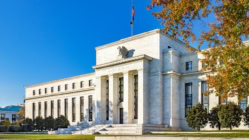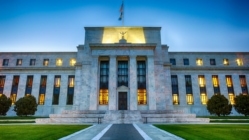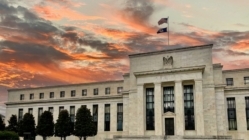
Here are a few random but very important points.
BIG SHORT GUYS ARE NOT SHORTING HOUSING!
In this recent Milkshakes Markets Madness podcast, famed macro analyst and fund manager Brent Johnson mentions that he knows the guys involved in “The Big Short.” These are the guys who made fortunes shorting housing prior to the 2008 bust. Johnson said that none of them are shorting housing now. So… take that Bubble Boys (the name that Logan Mohtashami gives to the guys who always predict a housing crash).
HUGE SUPPLY OF GOVERNMENT BONDS IS NOT PUSHING UP RATES
In this recent Eurodollar podcast, Jeff Snider explains how and why the massive onslaught of additional government borrowing is not pushing up rates. This is the opposite of what I predicted last week in this blog, where I pointed out that low tax revenues, much higher than expected deficits, and the need to replenish the TGA (government checking account) is pushing government borrowing to record levels – which SHOULD push rates way higher (to attract more investors).
BUT, per Snider, demand for longer-term bonds remains very strong to everyone’s surprise. The reasons: (1) investors want to lock in longer-term yields before they plummet; and (2) investors want to hold U.S. Treasuries because they are so liquid (easy to sell) while other instruments (like bonds backed by commercial real estate) are no longer liquid.
THE FED DOES NOT CONTROL INTEREST RATES
In January, I explained how the Fed does not control interest rates. The Fed controls short-term rates only, but they do not have that much control over long-term (10 years or more) rates. The Fed has pushed short-term rates up over 5% since last year, but the 10- year bond yield has only gone up about 2% since the Fed started to push up short-term rates. This a point Snider makes often – if the Fed had its way, long-term rates would have climbed over 5% too, but bond investors don’t believe that we will not have a recession so long-term rates remain relatively low. If a “soft landing” was definitely in the cards, 10-year bond yields would be much higher.
Note: Mortgage rates have climbed much more than bond yields, but that is because of a lack of demand for them. This is because investors can find more liquid and safer yields in both long-term and short-term government bonds. When the recession hits, this will change quickly.
So… maybe all the Fed watchers give too much credence to the Fed.
























